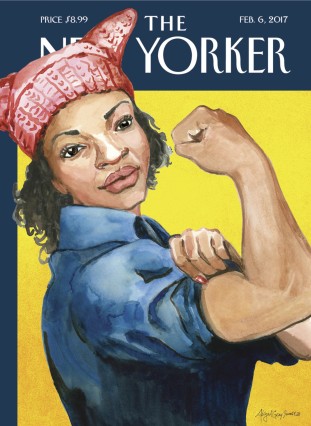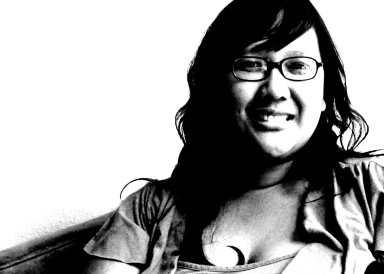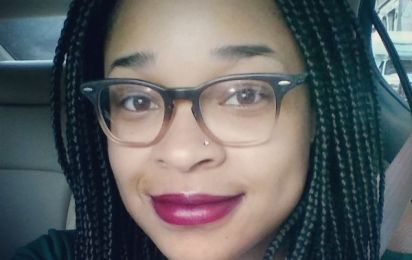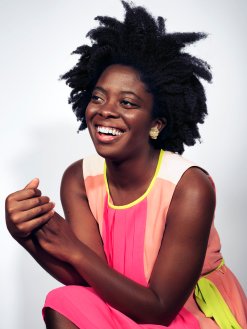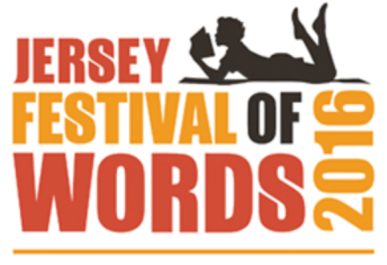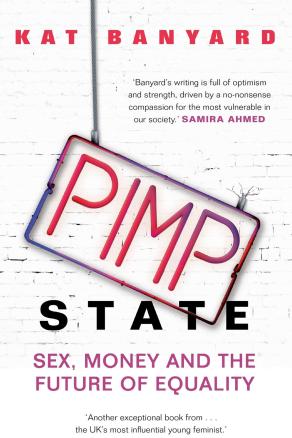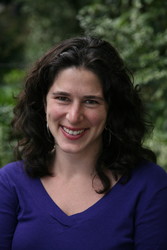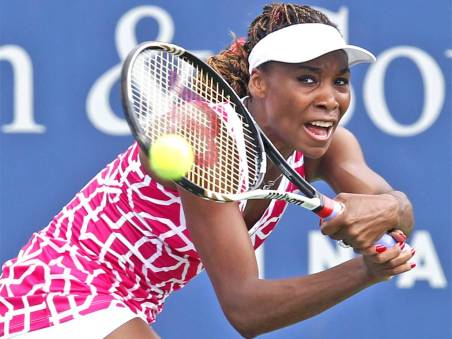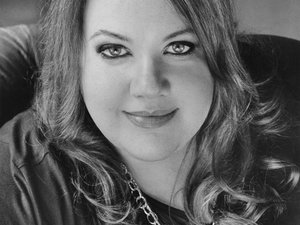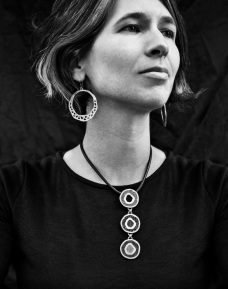2019 marks the fifth year of Jersey Festival of Words; it feels like no time at all and also as though the Festival has been part of the landscape for much longer. This year, the events featuring female writers are predominantly non-fiction events, but there’s still an interesting range of subjects and some very special moments.
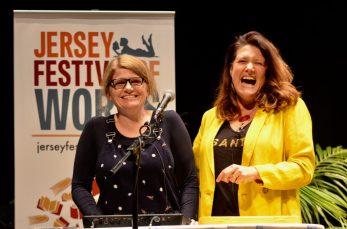
Those special moments come at the beginning and end of my Festival experience. On Friday evening the headliners, Kate Dimbleby and Cathy Rentzenbrink, create a show called ‘Out of Our Comfort Zones’. Dimbleby (yes, of that family) is a singer who wants to write longer pieces than three-minute songs and Rentzenbrink is an author (The Last Act of Love and A Manual for Heartache) who wants to sing. After sharing with us how they met and telling us their own stories – including Kate introducing us to Roland, the loop station which allows her to layer her vocals on stage – the fun begins. Kate asks Cathy to hum and we all join in to provide an accompaniment as Cathy opens her mouth and sings whatever notes she feels like. This is followed by a rendition of Stand By Me. Rentzenbrink appears exhilarated. The audience is collectively delighted that we’ve been allowed to witness this and to sing along in the darkness of the Opera House.
Then it’s Kate’s turn to be plunged into the new as Cathy sits her down with pen and paper, a timer set to five minutes, and some prompts related to memoir writing. We’re all invited to join in again. When the timer goes off, I’m lost in prose and surprised at what I’ve written. Kate, it turns out, has made one earlier. Following her initial meeting with Cathy, she began working on a memoir about her grandma, Mimi aka Dilys Thomas, who was the wife of Richard Dimbleby. It quickly becomes apparent that Kate can write and I’m already looking forward to being able to read the completed work.
The evening’s rounded off with an unexpectedly vulnerable moment where Cathy admits that she links singing to being drunk in the pub her parents ran. Now she no longer drinks, she isn’t sure she can disconnect the two things. Kate encourages Cathy to sing a sea shanty, one which Cathy learned from her dad, and Cathy does, growing in confidence as the piece progresses. As we leave the venue, there’s a sense that we’ve been part of something bigger than a literary event tonight. Something changed while Kate and Cathy were on stage and they’ve inspired us to try an activity that scares us too.

Saturday begins with a writer whose debut, award-winning book, The Salt Path came out of a terrifying life experience. Raynor Wynn begins her event with Andy Davey by explaining how a financial dispute with a friend led to the loss of the property her and her husband, Moth, had bought and restored twenty years earlier. This was compounded by Moth being diagnosed with a terminal neurodivergent disease. Determined to wrest some control over the situation, and inspired by Mark Wallington’s book 500 Mile Walkies, Raynor and Moth set off to walk the South West Coast Path. Raynor says they were drawn by the idea of following a line on a map. Physically moving forwards became a reason to go on, even though the path is 630 miles of relentless climes.
What stands out about Raynor’s story is the poverty her and Moth faced and how people reacted to their situation. She talks about how they underestimated the effect of hunger while walking the path and wild camping. A direct debit they forgot to cancel – house insurance for a house they no longer owned – led to them having pennies left with which to feed themselves. She talks about the narrowness of the path and how this forces interaction with the people you pass. Initially they told people the truth about losing their house, but the reaction from strangers – Raynor says she could see them physically draw back – led to Raynor and Moth changing their narrative. Instead, they told people they’d sold their house in a midlife moment. Now their story was inspirational. This has clearly affected Raynor and she states, ‘I’ve got something to say about homelessness’. It’s something I’m interested to hear more about – and in the current climate in the UK, it’s a topic many others should be paying attention to as well.


The day continues with another hot political topic via Leah Hazard, the author of Hard Pushed: A Midwife’s Story. Leah tells Cathy Rentzenbrink that she wanted to show the reality of her job and the experiences of giving birth. She comments that there’s a tendency to trivialise women’s experiences and their work, noting that the book’s been treated differently to recent medical memoirs written by men. Cathy says it’s unusual that they’re talking about normalising an experience that lots of people have been through.
Leah shares a range of stories. She talks about supporting teenagers giving birth and the care someone young and vulnerable needs; the ‘amazing’ experience of delivering a baby created via assisted conception to a lesbian couple, and, harrowingly, about the women she sees ‘on an almost daily basis’ who are being trafficked, and the holistic care they try to provide for these women. The job is ‘fascinating, endlessly, and challenging’. Hazard ends by saying she hopes the book ‘will make a difference. Individually. And maybe on a broader scale’.


Someone whose life did change enormously after having three children is Janet Hoggarth. She talks to Sara Palmer about how the events that followed the end of her marriage led to her first novel The Single Mums’ Mansion.
I’m on board as soon as Janet says she was told by a university tutor, ‘Your writing is fairly vulgar. No one wants to hear swearing. No one wants to read stories about girls having sex on a building site.’ Janet’s story is slightly more complicated than that, however. Not long after the end of her marriage, two of her friends found themselves in similar circumstances: one’s marriage broke up a month after Janet’s; the other gave birth only for her fiancé to leave four days later. The latter moved into Janet’s house so they could support each other as single mums – Janet’s children were 5, 3 and 1 when her marriage ended – and all three women synched the weekends when the children were with their dads so they could relax together. ‘It was really really magical. It was freedom.’
At the same time, Janet became interested in what she terms the ‘beardy weirdy’ aka holistic rituals and healing. She tells Sara she has a crystal in her bra and that she’s a trained reki healer. She cites two books which were important in her thinking The Journey by Brandon Bays and The Four Agreements by Don Miguel Ruiz. Janet detailed all of these experiences on a blog which her agent eventually convinced her to turn into a novel. It sounds like a riot and I leave the event keen to read it.

Saturday ends with more laughter as I interview Jenny Eclair, who is a joy. I’ll leave Festival reviewer Andy Davey to fill you in on that one.

Interviewing Jenny Eclair is pretty special but the magical moment that ends the Festival for me is Ana Sampson’s event about her poetry anthology She Is Fierce. Ana tells Richard Pedley that she compiled the book after realising that there were ‘more men called William’ than women in her previous anthologies and that when she looked for an anthology of poems written by women, she couldn’t find one. Ana’s passion for the poems she chose is evident in the way she talks about her reasons for including them and the decision to curate the anthology by theme, so readers could find poems that suited their mood. What makes this event so special though is the readings of poems that punctuate the conversation. Poems by writers including Lizzie Siddal, Yrsa Daley Ward, Hollie McNish and Imtiaz Dharker are read aloud by selected audience members. There’s something lovely and relaxing about being read to and especially so when the texts are poems. It allows us a real flavour of a carefully curated anthology.
My trips to Jersey Festival of Words are always lovely, but this year is especially so. Here’s to the next five years of wonderful events.
Festival photos by Peter Mourant.

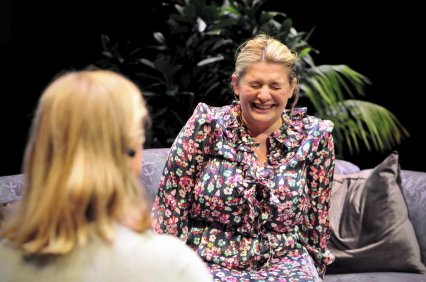


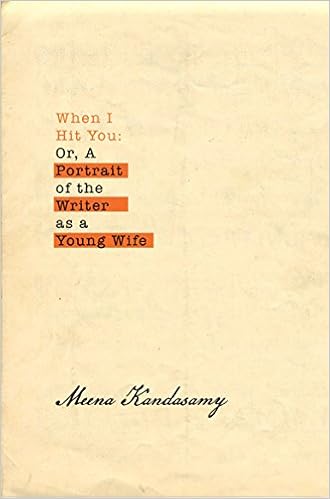


 Attrib. and Other Stories – Eley Williams
Attrib. and Other Stories – Eley Williams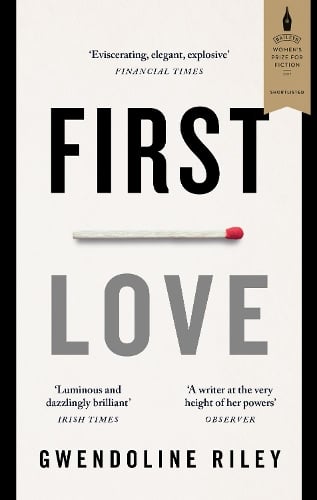 First Love – Gwendoline Riley
First Love – Gwendoline Riley
 The End We Start From – Megan Hunter
The End We Start From – Megan Hunter Homesick for Another World – Ottessa Moshfegh
Homesick for Another World – Ottessa Moshfegh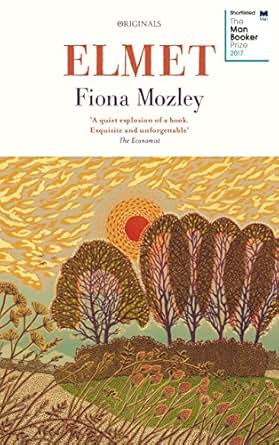 Elmet – Fiona Mosley
Elmet – Fiona Mosley Seeing Red – Lina Meruane (translated by Megan McDowell)
Seeing Red – Lina Meruane (translated by Megan McDowell)





